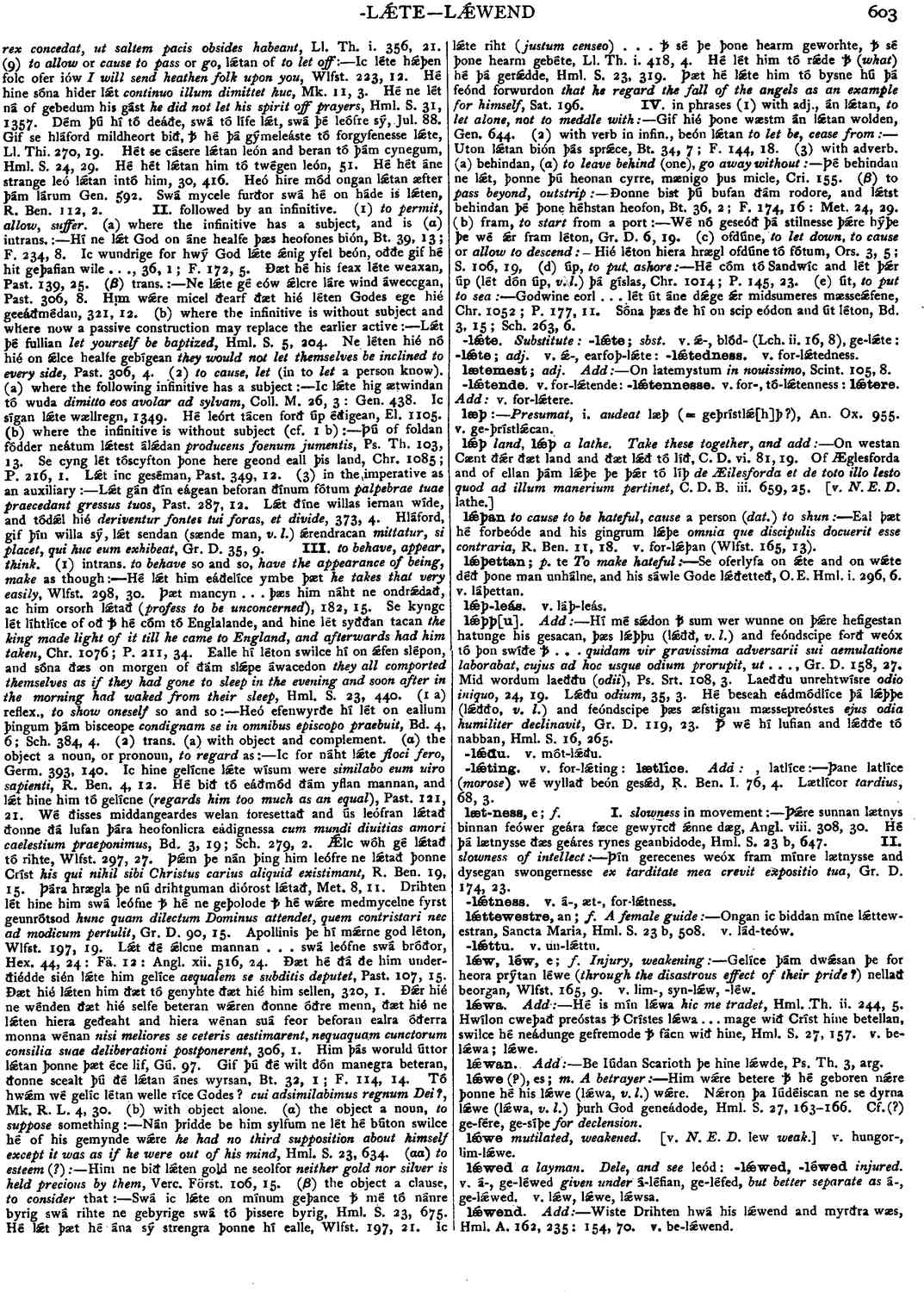lǽþþ
-
Hí mé sǽdon ꝥ sum wer wunne on þǽre hefigestan hatunge his gesacan, þæs lǽþþu (lǽðð, v. l.) and feóndscipe forð weóx tó þon swíðe ꝥ . . .
quidam vir gravissima adversarii sui aemulatione laborabat, cujus ad hoc usque odium prorupit, ut
. . . ,- Gr. D. 158, 27.
-
Mid wordum laeððu (
odii
),- Ps. Srt. 108, 3.
-
Laeððu unrehtwísre
odio iniquo
,- 24, 19.
-
Lǽðu
odium
,- 35, 3.
-
Hé beseah eádmódlíce þá lǽþþe (lǽððo, v. l.) and feóndscipe þæs æfstigan mæssepreóstes
ejus odia humiliter declinavit
,- Gr. D. 119, 23.
-
Ꝥ wé hí lufian and lǽððe tó nabban,
- Hml. S. 16, 265.
Bosworth, Joseph. “lǽþþ.” In An Anglo-Saxon Dictionary Online, edited by Thomas Northcote Toller, Christ Sean, and Ondřej Tichy. Prague: Faculty of Arts, Charles University, 2014. https://bosworthtoller.com/54222.
Checked: 0